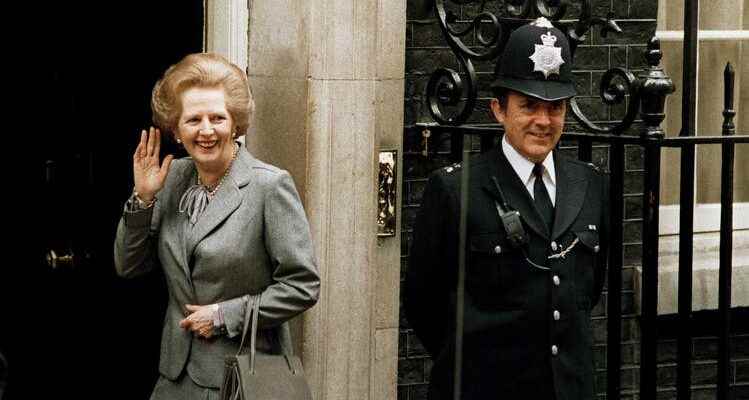Nine years after her death, Margaret Thatcher is making a posthumous comeback in the race to succeed Johnson. Both Liz Truss and Rishi Sunak present themselves as Thatcher’s political heirs – and argue about how the “iron lady” would react to today’s economic misery.
The British Prime Minister in May 1980 in front of 10 Downing Street. Even 42 years later, she remains influential for the British Conservatives.
In 1987, Margaret Thatcher explained in a BBC interview, she hopes to keep going and going as Prime Minister. In autumn 1990 she had to resign after an internal party rebellion, and she died in 2013 at the age of 87. But now the “iron lady” is making a kind of comeback in the race to succeed Boris Johnson. Both the favorite Liz Truss and her opponent Rishi Sunak declared Thatcher their great role model in the office of Prime Minister – and have been fighting each other bitterly for their political heritage ever since.
Targeted Associations
With her choice of clothes and symbolism, Truss has long aroused associations with Thatcher. In February, the foreign minister traveled to Moscow in a fur coat similar to that of her role model. Last fall, she had her picture taken on the roof of a British tank in Estonia, recreating a 1986 image of Thatcher. In addition, Truss presents herself as a bold and assertive doer, whose character resembles that of the “iron lady”.
Former Chancellor of the Exchequer Sunak, meanwhile, insists he used to do the bookkeeping in his mother’s pharmacy in Southampton when he was young. He also arouses associations with Thatcher, who grew up as the daughter of a grocer in Grantham. Her family lived above the shop, and her father’s small business had a lasting impact on Thatcher’s economic thinking. To this day, her name stands for entrepreneurial freedom and low taxes, a solid budgetary policy, a lean state and bitter disputes with the unions.
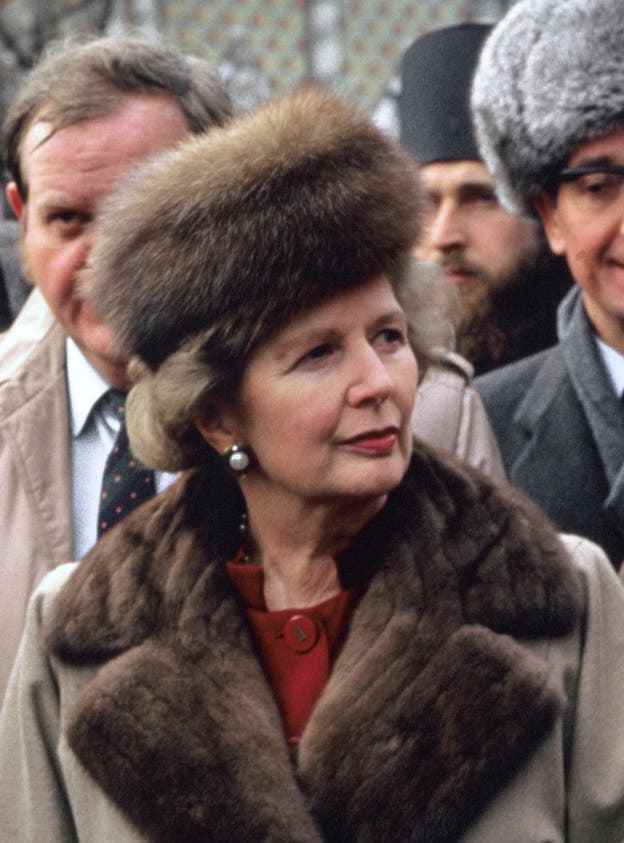
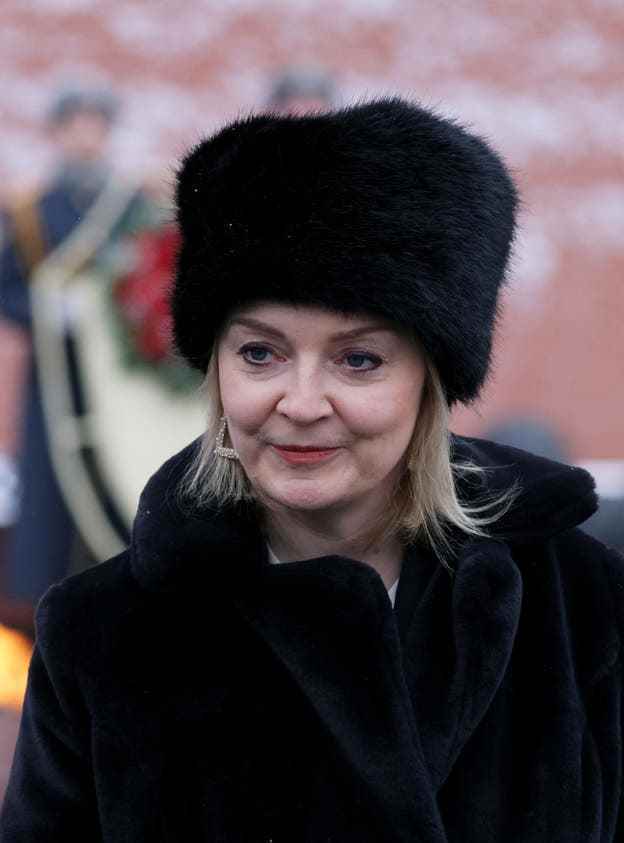
Secretary of State Liz Truss’ (right) trip to Moscow in February 2022 brought back memories of Margaret Thatcher’s state visit to the Soviet Union in 1987.
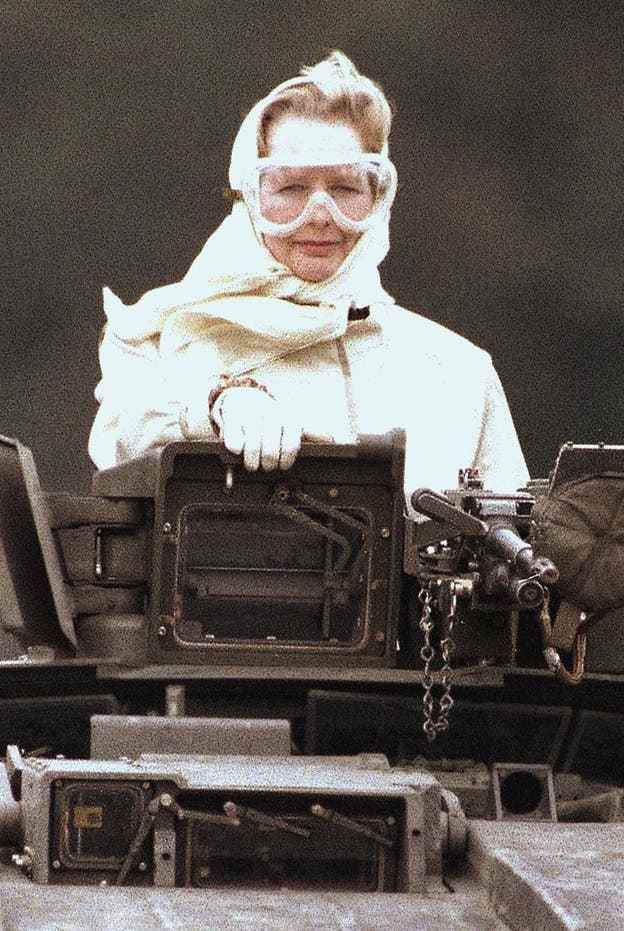
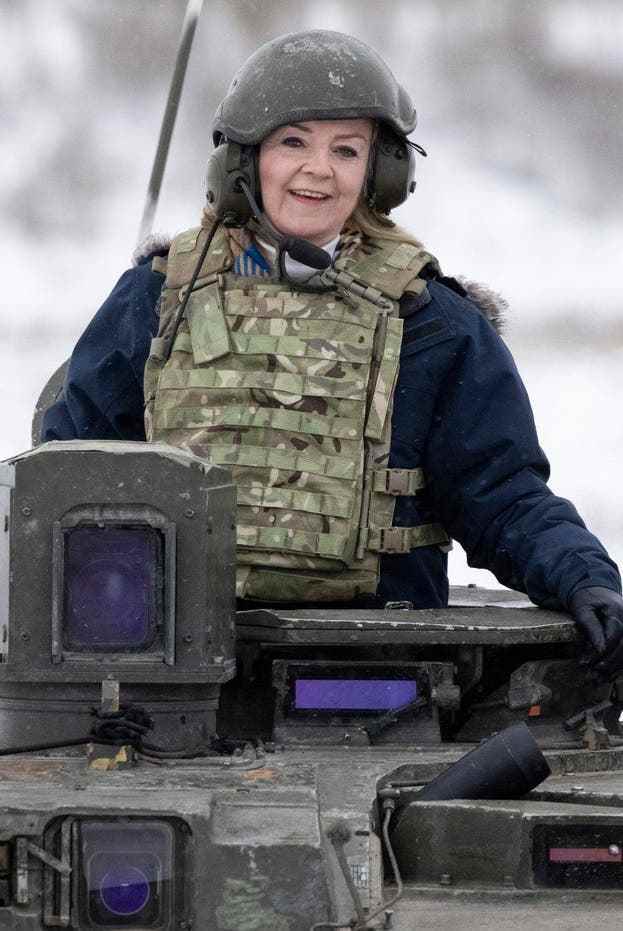
Margaret Thatcher (left) poses on top of a British tank in Germany in 1986, and Liz Truss similarly poses in Estonia in 2021.
Cult status among Tory members
Thatcher’s prominence in the Tory presidency race shows that the party has slipped into an identity crisis in recent years. Boris Johnson hardly referred to Thatcher, his great role model is Winston Churchill. Under Johnson’s aegis, the Tories ensnared former Labor voters in post-industrial north England, where the “iron lady” is still viewed as a red rag for closing mines and factories.
In order to keep the new voters happy, Johnson promised state investments in infrastructure and in the ailing health service, which Chancellor Sunak had to finance with tax increases. The drastic state interventions during the Corona crisis also showed that there was no clear ideological compass. Caroline Slocock, who once served as Thatcher’s private secretary, recently told the BBC that Thatcher was giving the unsettled Tories political direction again. In addition, in contrast to the scandal-ridden Johnson, she was a personality with integrity through and through.
In any case, Thatcher enjoys cult status among many Tory members who decide the race between Sunak and Truss in an online and postal vote by the end of August. In a YouGov survey In 2019, 93 percent of party members spoke positively about the first conservative female prime minister. 56 percent declared “Thatcheristic” to be the adjective that best describes their political stance.
Thatcher evokes memories of domestic political successes and foreign policy glory. John Major, David Cameron, Theresa May and Boris Johnson all lived at 10 Downing Street for just a few years. Thatcher, on the other hand, won three consecutive elections for the Tories, led her country to a military triumph in the Falklands War and slammed her purse on the table in negotiations in Brussels.
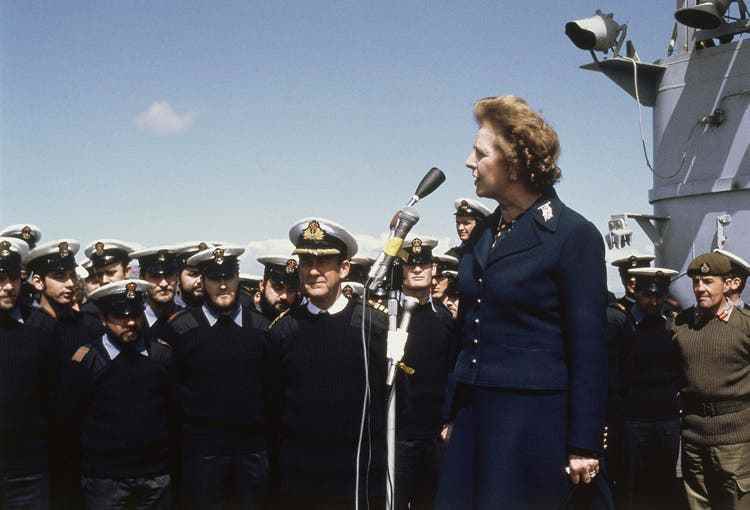
Memories of foreign policy glory: Margaret Thatcher arrives for a surprise visit to the Falkland Islands in 1983 after winning the war against Argentina.
Dramatic economic situation
The main reason for the revival of the “iron lady” is probably the economic situation, which awakens anxious memories of the time that Thatcher took office in 1979. In the late 1970s, Britain suffered from stagflation. Similar to today, the trade unions tried to enforce higher wages with strikes. Last week, the Bank of England forecast inflation for the autumn of 13 percent. According to the dramatic prognosis not only will inflation remain at a high level for a long time, there is also the threat of a recession that is likely to last until the end of 2023.
Sunak and Truss propagate different ways out of the misery. Truss promises short-term tax cuts funded by new debt to boost economic growth. According to the Times their projected overspending and shortfalls add up to £80bn. Sunak, on the other hand, opposes a debt economy and stresses that before lowering taxes, the country must first get a grip on inflation, which is making all Britons poorer. He believes Truss’ tax cuts will further fuel inflation.
Thatcher advocated stable money
Both refer explicitly to Thatcher. Truss can point to the 1988 budget, when Thatcher’s Chancellor of the Exchequer, Nigel Lawson, presented such far-reaching tax cuts that the House of Commons session had to be suspended due to opposition protests. Sunak, on the other hand, refers to 1981, when Thatcher’s first Chancellor of the Exchequer, Geoffrey Howe, presented a budget in the middle of the crisis that was supposed to balance the budget with tax increases and fight inflation.
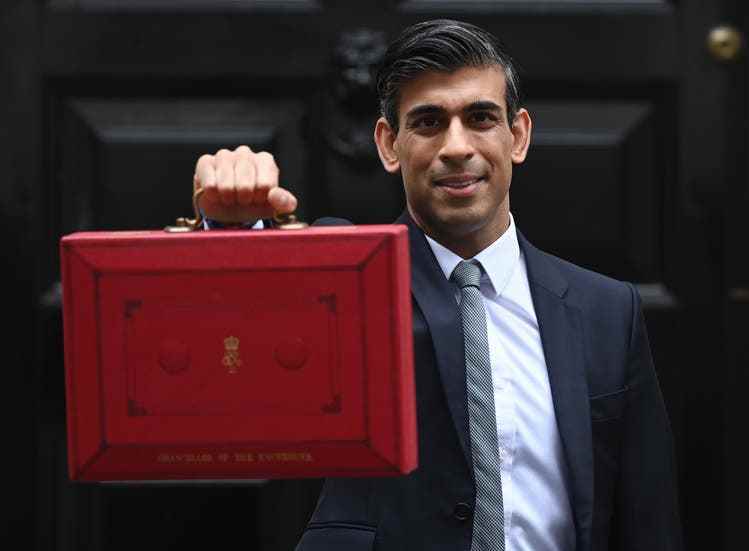
Former Chancellor of the Exchequer Rishi Sunak presents the red suitcase with the state budget in October 2021: He sees himself in the tradition of Thatcher’s finance ministers.
in one Guest article in the Daily Telegraph former Chancellor of the Exchequer Lawson recently declared that only Sunak understood Thatcher’s logic. Because his boss at the time gave top priority to fighting inflation and solid finances and was of the opinion that lasting relief was only possible in a second step. In other words, the basis for the tax cuts of 1986 was only created after the drastic cure of 1981 put a stop to inflation.
Ultimately, the optimistic Truss, who wants to catapult the country out of the looming recession with risk-taking, tax incentives and deregulation, reminds more like Thatcher’s American contemporary Ronald Reagan. Sunak’s cautious approach, on the other hand, corresponds more closely to the thinking of the grocer’s daughter Thatcher, which always understood the state budget as a larger version of the budget of a private household or small business. In view of the worrying prospects, taking office in September would of course be an epochal challenge for both of them.
